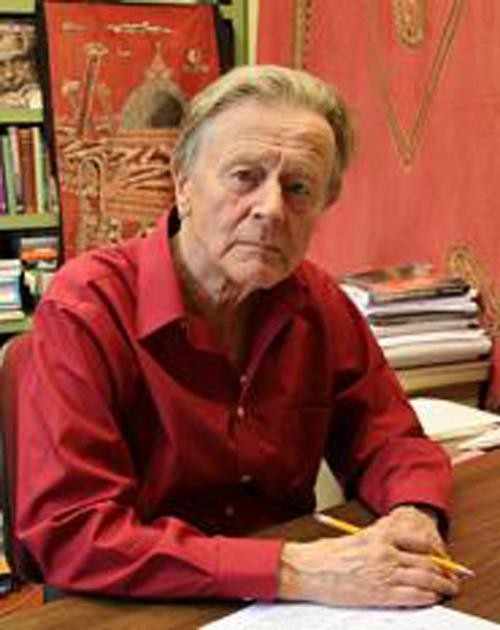With the death of Tom Gehrels on July 11, the UA’s Lunar and Planetary Lab lost a pioneer in planetary astronomy.
Raised on a farm in the Netherlands, his aspirations were focused on a career path above and beyond the fields, said his son, Neil Gehrels. During World War II, Tom Gehrels joined the Dutch Resistance against the Nazis. He eventually escaped from the country and fought again alongside the British. As a paratrooper, he dropped behind enemy lines several times. Neil Gehrels said it was during the war years that his father became interested in science and astronomy.
Initially, Gehrels’ astronomy career landed him at universities across the country. It was at his final stop at the UA where he would have his biggest impact and revolutionize the way people understand and view outer space.
He arrived at the UA in 1961 as an associate professor. During nearly half a century of work with the Lunar and Planetary Lab, he made many notable contributions to the field of planetary sciences, including the study of the polarization of asteroids to infer properties of asteroids’ surfaces. As the founder and lead scientist of the Spacewatch Project on Tucson’s Kitt Peak, he was one of the first to study the hazards of near-Earth asteroids. He developed the UA’s Space Science Series of conferences and books and wrote more than 10 other books on his own.
Every year, Tom Gehrels taught a class on astronomy and humanity. Through teaching, he became interested in cosmology and spent his later years writing papers on his multiverse theory. He was involved in humanitarian efforts throughout his life and was a strong supporter of dissident scientists in the Soviet Union, Neil Gehrels said.
Robert S. McMillan, an associate research scientist at the Lunar and Planetary Laboratory and Steward Observatory, and the principal investigator of the Spacewatch Project, worked with Tom Gehrels for 27 years. He said he admired his friend’s fearlessness, optimism, and disdain for bureaucracy and excessive rules. McMillan said he would miss his friend’s candor when discussing anything from events across his life to his scientific work.
McMillan added that combating the Nazis and calling the world’s attention to the dangers of asteroids were some of Tom Gehrels’ greatest contributions to mankind.
Neil Gehrels said his father was also an exceptional parent who greatly influenced the lives and development of his children.
“”I consulted with him often on science and life and will dearly miss him,”” Neil Gehrels said.









